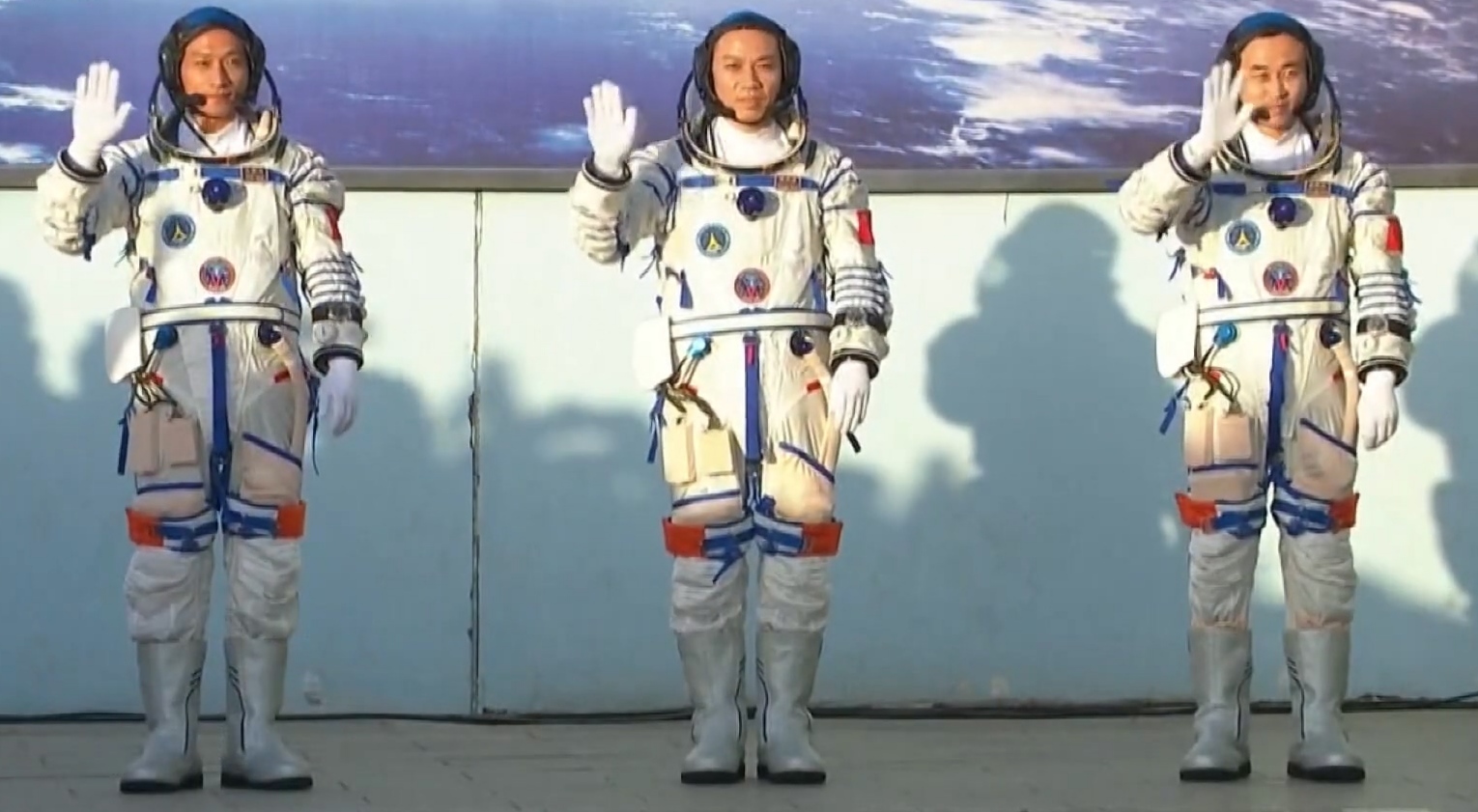
China has embarked on a new era in its space exploration endeavors by launching the youngest-ever crew of astronauts, known as taikonauts, to its Tiangong space station, intended to cement the country’s position in the global space race. Shenzhou-17 or “divine vessel” took off October 26 with three crew members atop a Long March 2F rocket from the Jiuquan Satellite Launch Center in northwest China.
Leading this six-month mission is former Chinese air force pilot Tang Hongbo, 48, who made history in 2021 by being part of the first crewed mission to Tiangong, which means “heavenly palace” in Chinese. His return to the outpost not only signifies his remarkable accomplishment but also establishes a new record for the shortest interval between two spaceflight missions by taikonauts. This record hints at a quicker rotation of taikonauts in the years to come.
Tang’s journey to space has been a long-awaited one, according to the agency, as he hails from China’s second batch of astronauts in 2010 and had to wait for more than a decade before his inaugural spaceflight in 2021.
Also aboard is 34-year-old Tang Shengjie and 35-year-old Jiang Xinlin, both of whom are on their first trip into space.
Notably, this mission marks a significant step as the country opens the astronaut selection process to applicants from Hong Kong and Macau for the first time. In contrast to international space missions led by NASA, where English is the working language, Chinese is the exclusive language used on Tiangong, making proficiency in the Chinese language a crucial requirement for foreign participants.
Join our Discord Server: Join the community with forums and chatrooms about space!
The three-module Tiangong space station was completed in late 2022 and has a regular crew size of three astronauts. It orbits at an orbital altitude of up to 280 miles (450 kilometers) and is designed to remain operational for over 15 years.
The Shenzhou-17 mission was a replacement for the Shenzhou-16 crew, who had been living aboard Tiangong since the end of May. The Shenzhou-16 crew, consisting of veteran astronaut Jing Haipeng, Zhu Yangzhu, and Gui Haichao, returned to Earth October 31. Both Zhu and Gui, in their 30s, are part of China’s third batch of astronauts, selected in 2020.
Shenzhou-17 marks China’s 12th crewed mission since Yang Liwei’s historic solo spaceflight in October 2003, which made him the first Chinese national in space. As the country continues to advance its space ambitions and expertise, this mission signals its determination to contribute significantly to space exploration in the future, both on a national and international scale.
FTC: We use income earning auto affiliate links. More.

Comments